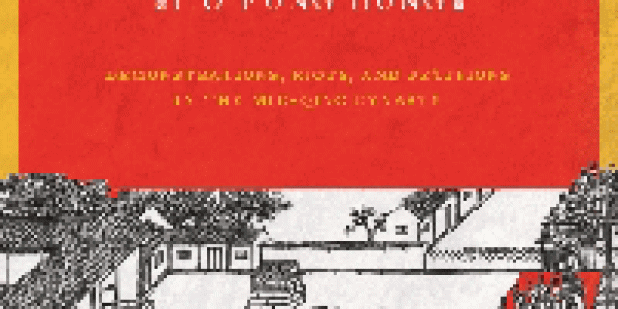Happy Lunar New Year from the USC US-China Institute!
Protest with Chinese Characteristics, Past and Present
Ho-fung Hung, a Professor of Sociology at Johns Hopkins University will talk about the historical evolution of Chinese dissent that stands apart from Western trends.
Where

Speaker/Performer: Ho-fung Hung, Associate Professor of Sociology, Johns Hopkins University
The origin of political modernity has long been tied to the Western history of protest and revolution, the currents of which many believe sparked popular dissent worldwide. Reviewing nearly one thousand instances of protest in China from the eighteenth to the early-nineteenth centuries, Ho-fung Hung charts an evolution of Chinese dissent that stands apart from Western trends.
Hung shows how the centralization of political power and an expanding market, coupled with a persistent Confucianist orthodoxy, shaped protesters' strategies and appeals in Qing China. This unique form of mid-Qing protest combined a quest for justice and autonomy with a filial-loyal respect for the imperial center, and Hung's careful research ties this distinct characteristic to popular protest in China today. As Hung makes clear, the nature of these protests prove late imperial China was anything but a stagnant and tranquil empire before the West cracked it open. In fact, the origins of modern popular politics in China predate the 1911 Revolution.
Ho-fung Hung is Associate Professor of Sociology at the Johns Hopkins University. Hung is the author of Protest with Chinese Characteristics (Columbia University Press, 2011; winner of President’s Book Award, Social Science History Association) and editor of China and the Transformation of Global Capitalism (Johns Hopkins University Press, 2009). His works focus on the distinct historical trajectory of contention and state-building in China, as well as how the contemporary rise of China and other developing countries is reshaping global capitalism. His articles appeared in New Left Review, American Journal of Sociology, American Sociological Review, Social Science History, among others.
Featured Articles
We note the passing of many prominent individuals who played some role in U.S.-China affairs, whether in politics, economics or in helping people in one place understand the other.
Events
Ying Zhu looks at new developments for Chinese and global streaming services.
David Zweig examines China's talent recruitment efforts, particularly towards those scientists and engineers who left China for further study. U.S. universities, labs and companies have long brought in talent from China. Are such people still welcome?






